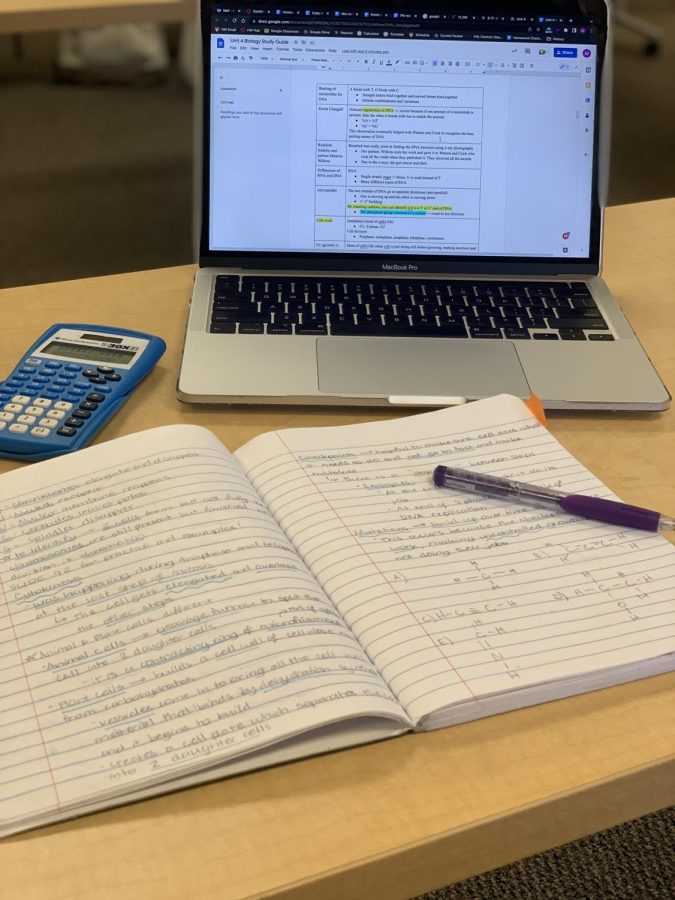Why many aspects of class are undervalued in grades
By Matthew Lee ’21
It’s test day today, and a student walks into the classroom feeling nervous, which is a common effect of the stress testing puts on students. Throughout the unit, this student has been an active participant in class discussions, has put effort into all of his homework and has demonstrated a solid understanding of the material. In most classes, however, tests count for the majority of a student’s grade, meaning that all the hard work a student puts in will amount to nothing if a 40-minute test goes badly.
The grading method of many classes has to change. The purpose of classes should be for students to learn the particular subject matter and how to think critically, rather than just learning how to spit out information on a test. Having tests weigh so heavily on a student’s grade is detrimental to that principle. At my old school, tests were a big chunk of my grade, but other factors such as homework and participation were also weighed heavily. I was able to work on problems without worrying about one test tanking my grade. In most math classes at this school, tests and quizzes count for a total of 90 percent of a grade (tests being 60 percent and quizzes being 30 percent), while homework counts for only 10 percent. Other aspects of class such as participation don’t count at all. The pressure that tests put on a student takes away from what should be the primary focus of a class: to learn the material. I often find myself stressing out about whether additional practice will help me get a better test grade, rather than learning the process of solving a problem. All of my math teachers have been great, as they are clear in their lessons and always available for help. The teachers are definitely not the problem; the grading system is. The over-emphasis on tests changes my motivation from learning the process of problem solving to learning so that I can get an “A” on a test.
Tests are very important and should make up a significant chunk of a student’s grade. Tests and studying for tests challenge students to review their accumulated knowledge within that applicable portion of a subject. However, the current allocation of the value of a test in a student’s grade is too high compared to the value of homework and participation. A grade is supposed to reflect a student’s knowledge in a subject matter. If tests really represented the majority of a student’s progress, then the value of tests in a student’s grade should indeed reflect that, despite its negative effects. However, participation and doing homework are very important, but are undervalued in the grading system. Not only do tests put a lot of pressure on a student, but they also undermine other important factors in a student’s learning.
Participating in class is a great way for students to demonstrate their progress in class. Speaking up in class generates different viewpoints and ideas, which makes for open-ended learning and discussion beyond just one-dimensional test questions. The classroom should not be limited to just lectures and textbook reading; it should also be a place for students to engage in meaningful discussions and share varying opinions, which are enabled through students participating in class.
Another aspect of class undermined by its low weight on a student’s grade is homework. Similar to tests, homework usually involves answering questions about the class material, and occasionally teachers will give more open-ended and creative assignments. This allows students to put to use their knowledge of the subject without requiring the memorization and therefore, overemphasizing specific facts. In addition, a student who puts effort into homework every night shows that they are hard workers and want to succeed. Unfortunately, homework has a very low impact on a student’s grade compared to the value of a test. It should be unacceptable for students to skip their homework on a regular basis, and when it happens, the students rarely face significant consequences as long as they perform on the test. Homework is considered an essential part of school, but they only count for a small part of a student’s grade because of the overemphasis on tests. Some students can put minimal effort into their homework but still get a good grade by doing well on tests. The value of hard work is neglected when students who don’t put effort into their homework get good grades just for doing well on their tests.
There is no denying that tests are an important part of school. However, tests having too much weight is detrimental to the grade’s accuracy. There are exceptions to the norm such as classes where a larger portion of the grade is allocated to participation and homework, but they are in the minority compared to other classes. A grade is supposed to assess how a student has progressed in the subject. There are several meaningful ways for a student to demonstrate their learning of a subject matter in a class, but tests counting too heavily in such an assessment wrongfully devalues the importance of other facets of class.








